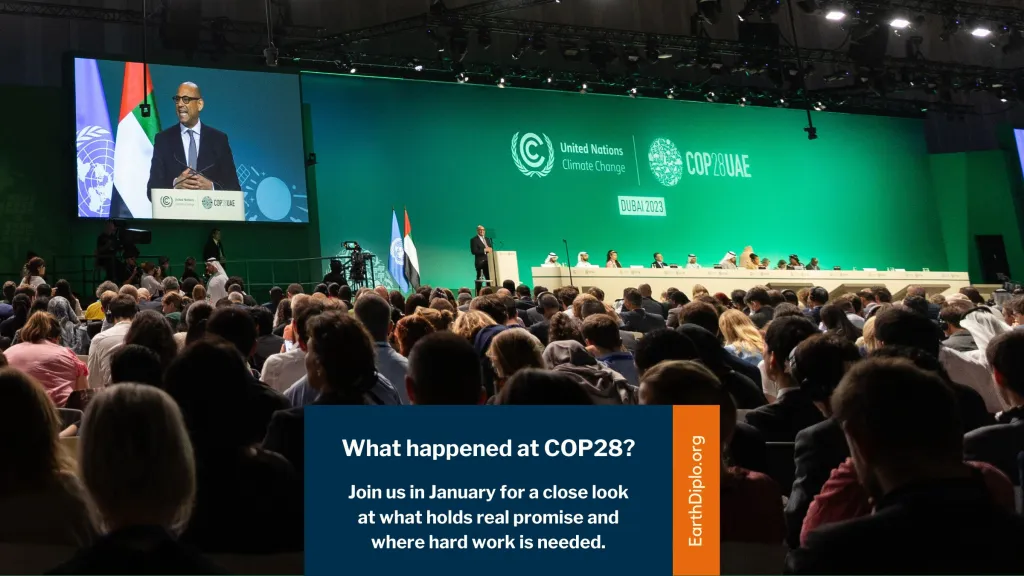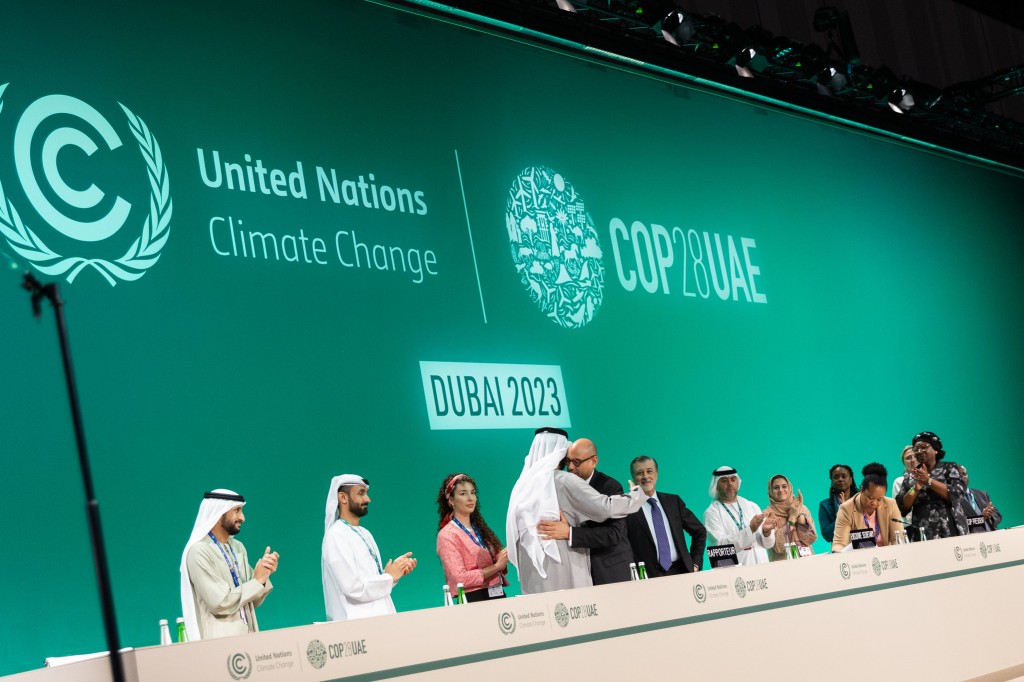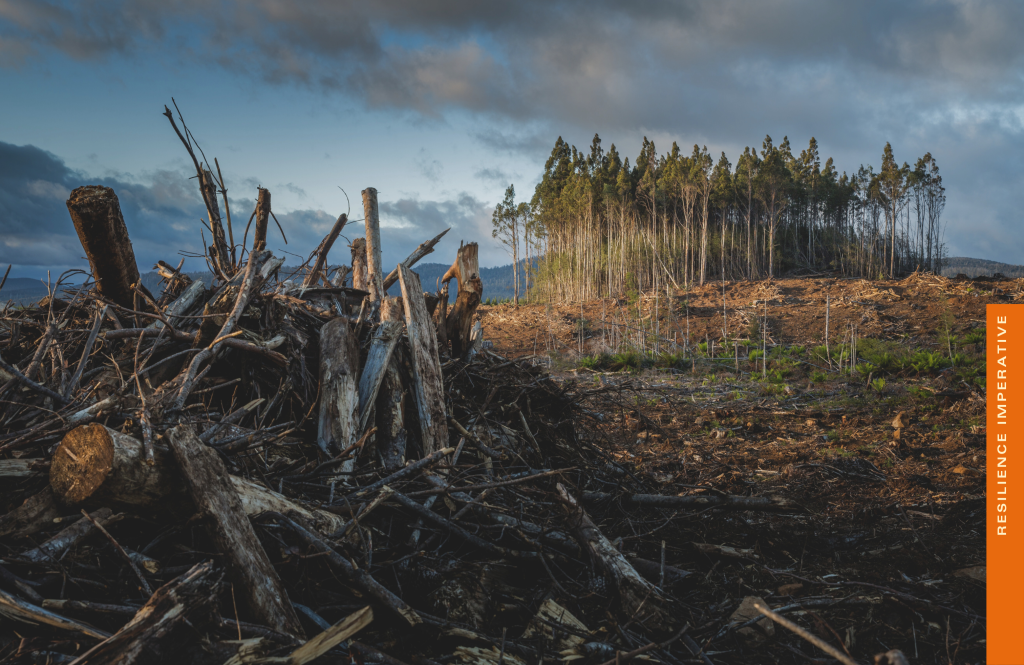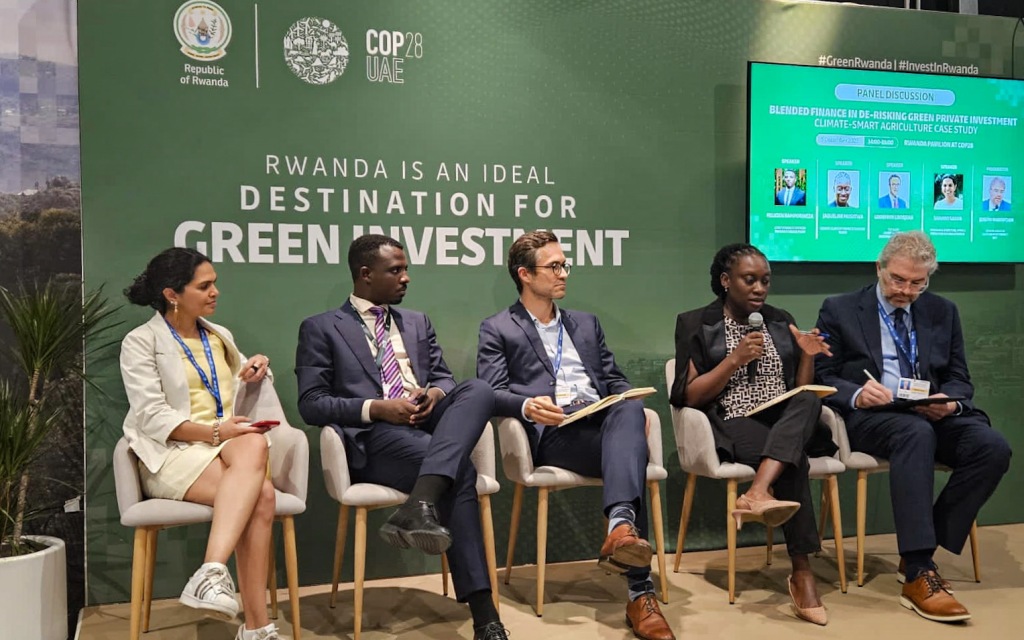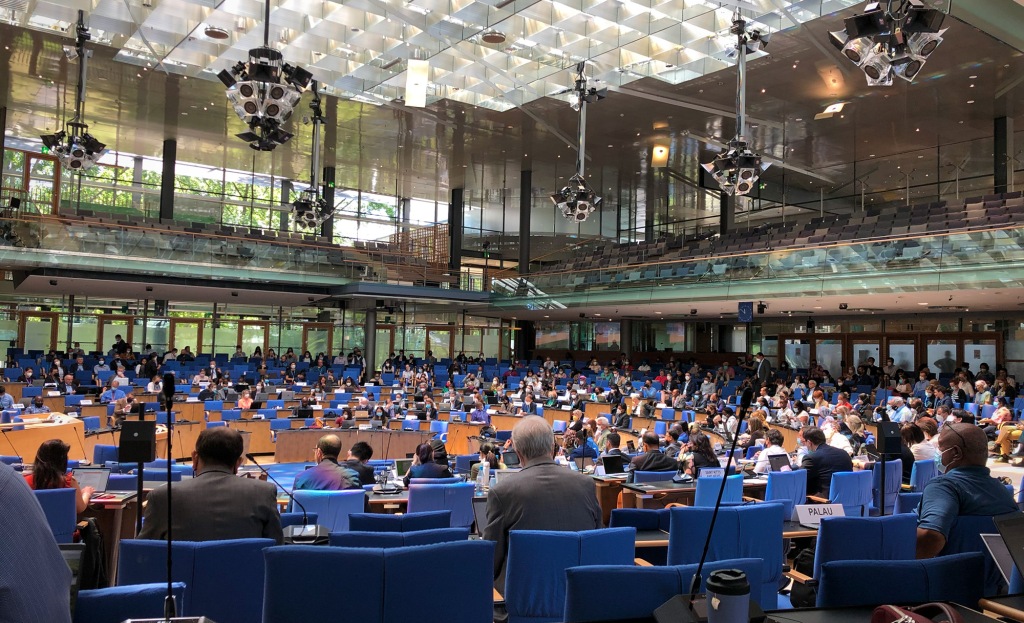The Earth Diplomacy Leadership Initiative is a series of trainings on intergovernmental policy processes, and related diplomatic strategy, co-convened by Citizens’ Climate International and The Fletcher School at Tufts University. Earth Diplomacy Leadership workshops prepare diplomats and observers, as well as scholars, media, and other stakeholders and decision-makers, for intergovernmental processes that shape humanity’s response to climate change.
To date, there have been sessions convened ahead of the SB56 mid-year negotiations in 2022, the COP27 later that year, the SB58 in June 2023, and the COP28 in Dubai at the end of last year. In January, we concluded the COP28 cycle of workshops with a COP28 Debrief, which reviewed outcomes, questions of process, and how what was agreed works to make new law for climate-smart transformation.

On Thursday, March 14, we opened the 2024 cycle of workshops with a broad thematic review of the Journey to Baku, and a discussion of signals and opportunities for Earth Diplomacy Leadership around the calendar this year. The workshop included:
- Climate civics and multilateral cooperation – Joseph Robertson, CCI
- Adaptation and Finance updates – Selamawit Wubet, Global Center on Adaptation
- Operationalization of the Loss and Damage Fund – Prof. Mizan Khan, ICCCAD
- Climate impacts on food security – Dr. Michael Terungwa David, CCI
- Moderated discussion of: Trade, Livelihoods, Co-benefits, and Metrics
The geopolitical journey to Baku will be complicated, uneven, and made up of potentially transformational moments that are not directly connected to the UNFCCC process itself. Multilateral agreements to accelerate overall action toward Paris Agreement goals and compliance with the Convention mandate will provide urgently needed opportunities to:
- Evolve international financial arrangements to value and respect vulnerability and to support climate-resilient shared sustainable development;
- Reduce sovereign debt burdens that undermine the ability of nations, and regions, to operate optimally day to day and to stage sustained, effective climate crisis response;
- Move all relevant resources to countries and communities experiencing serious climate-related loss and damage;
- Establish new, more multidimensional means of sharing Earth science data, linking science data to finance, and providing end users with critical decision insights;
- Shift incentives by removing subsidies and pricing pollution, in ways that are efficient, effective and equitable, and build value for local economies;
- Set clear priorities for regenerative and agroecological food production, improving rural livelihoods while expanding the reach of affordable sustainably produced food;
- Design and upgrade bilateral and multilateral trade agreements, to bring the most durable climate-related value to local and national economies, among the trading partners.
Our opening thematic review included a policy engagement roadmap put forward by CCI’s Climate Income Working Group.

Early analysis suggests five key themes will link COP28 outcomes to multilateral negotiations throughout 2024:
- The Illusion of Immunity – Some people, countries, and businesses, might be safe from serious climate damage for some time, while others experience danger, but such selective safety can be misleading. By the time the privileged and protected experience danger personally, extreme climate destabilization and nature breakdown will have advanced so far as to be unrecoverable.
- Extreme fossil fuel subsidies are a sign of industrial, commercial, and political failure. Healthy dominant industries should not need, seek, or extract windfall profits from record subsidies, and governments should not be left with no choice but to reinforce such schemes. Transition strategies need to include smart subsidy shifting and pollution pricing.
- Climate-smart economies are good for everyone. We need to evolve economies that meet human needs and aspirations. This is critical for the climate, but also for restoring trust in governance overall. Climate-degrading activities are degrading our ability to work together, to solve problems, both in the everyday and at planetary scale. Nations that make the shift more quickly to climate-smart, inclusive sustainable development will be stronger, more prosperous, more trusted, and more secure.
- Funding to address Loss and Damage is an area of overwhelming need, and the last area where financial arrangements should generate additional debt. Funding for loss and damage response should include direct access, with less room for money going to something other than the needs of the vulnerable. Vulnerability-sensitive debt relief is critical for facilitating the transition and for building trust among nations.
- Transparency is legitimacy – All nations need factual information about progress toward climate goals. Underlying international law is the implicit requirement that legal commitments, even voluntary ones, are made in good faith, and all Parties will act to achieve the healthiest collective outcome. Future success for everyone depends on actions that meet the moment, now.
Getting beyond the illusion of climate immunity will entail material progress in each of the areas reviewed in this workshop:
- Adaptation measures and broader climate finance mobilization;
- Operationalization and scaling up of the Loss and Damage Fund;
- Financing, capacity-building, and implementation of climate-smart agriculture and rural economic development;
- Enhanced climate civics in local, national, and supranational processes;
- Non-market multilateral cooperative agreements to mainstream climate-smart trade.
The Enhanced Transparency Framework is a start toward more robust, detailed, and collaborative national and international reporting of climate crisis response activities, finance mobilization and resourcing. The Net Zero Data Public Utility announced at COP28 in Dubai will also begin to create new opportunities in 2024 for small and medium-sized enterprises (SMEs) to build businesses and attract investment to mainstream non-voluntary climate action ratings, so more decision-makers, including local and marginal communities and consumers, can make informed choices that drive the wider economy in the right direction.
Some further insights that were shared, which we wish to highlight for the upcoming Pre-SB60 Earth Diplomacy Leadership sessions, and for future engagement through the Climate Value Exchange:
- Climate finance needs further definition—both to ensure loose definition doesn’t lead to an underfunding of total climate-related financing needs or official development assistance and to provide better, and possibly layered, metrics for assessing the overall transition to climate-smart finance across the economy.
- Climate finance needs to expand significantly—There is not enough climate finance committed or circulating, and too little of it addresses adaptation needs, capacities and resilience of vulnerable countries and communities, or loss and damage-specific needs.
- Loss and Damage Fund modalities will need to go beyond standard World Bank practice, where nation states are the primary funded counterparts, to ensure more active, direct, and ongoing engagement with affected communities.
- Climate-induced migration—including involuntary displacement within countries and across borders—got long overdue recognition at COP28; the work to advance cooperative responses to climate-induced migration will need to advance in 2024, as most institutions have not historically prepared for the scale of disruption that is already happening.
- Addressing food system stresses can be a critical level of climate action. 161 nations endorsed the Emirates Declaration on Food Systems and Climate Action, while evidence shows climate impacts are degrading food production and food security now, even in large, populous nations. Linking finance innovation and mobilization to co-benefits, including improved livelihoods and better outcomes across the SDGs, can de-risk and expand climate-related investments.
All of this needs attention; all of this can start to happen in big ways this year; 2024 can be a year for upgrading the mainstream understanding of climate economics.
Related background reading
Learn more about the Earth Diplomacy Leadership Initiative at:


